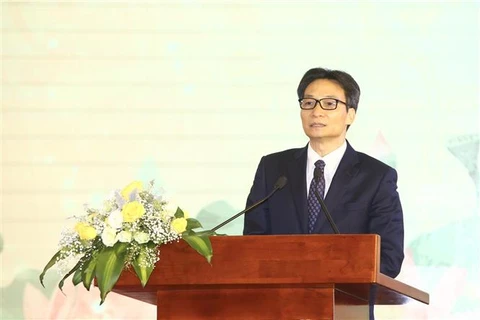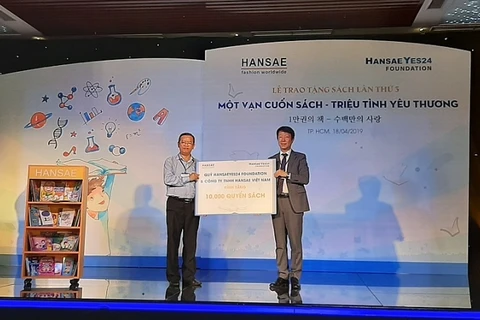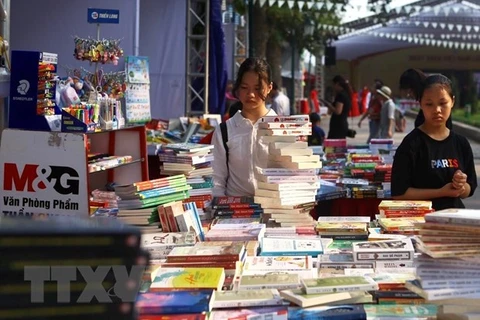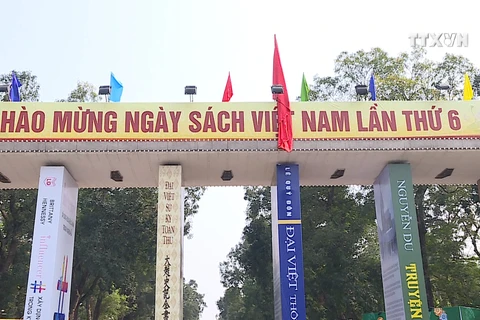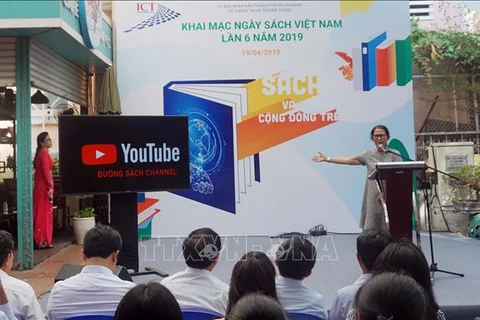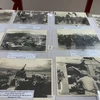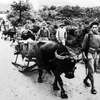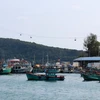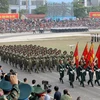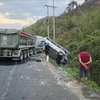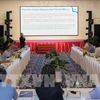Hanoi (VNA) – Unlicensed books are too sophisticated that publishers sometimes cannot distinguish between real books and fake ones, while the number of management staff remained few.
Unlicensed publications have become more and more sophisticated with different forms. They are not only printed publications but also e-publications, not only for sale but also for free. Reasons and solutions to deal with the real situation were discussed at a seminar on the fight against unlicensed publications which was jointly held in Hanoi on June 20 by the Vietnam Education Publishing House and the British Embassy.
Difficult to differentiate real and fake publications
Speaking at the seminar, Nguyen Ngoc Bao, Deputy Director of the Department of Publishing, Printing and Issuing under the Ministry of Information and Communications, said the illegal printing of publications has occurred in a larger and more complicated scale over the recent years. Unlicensed printers have used sophisticated tricks to avoid the detection and settlement from authorized agencies.
The illegal printing of publications have severely affected the legitimate rights and benefits of authors, caused huge economic losses to publishing houses and partners as well as the state budget and damaged Vietnam’s prestige on the international arena when the country joined the Berne Convention for the Protection of Literacy and Artistic Works.
Among publishers, the Vietnam Education Publishing House has had the highest number of publications illegally printed. Its statistics showed that since 2010, the Vietnam Education Publishing House has discovered more than 500,000 book copies, over 100,000 CDs and almost 8 tonnes of semi-finished products of textbooks were illegally printed and stored for distribution in many provinces and cities across the country.
Nguyen Van Phuoc, Director of the First News – Tri Viet Publishing Co. Ltd, said the company now has around 1,000 book titles, including 400 sought-after books. But it has up to 686 book titles illegally printed with more than 3,000 unlicensed editions. Many book titles have been illegally published in different places at the same time. First News has published only one edition for one book title but illegal printers issued different editions and competed with each other in prices.
Not only printing in a large quantity, illegal printers have used more and more sophisticated artifices. Fake books look like genuine ones and only experienced insiders of the publishing industry can detect details such as slightly dimmer covers and thinner covers and slanting spines.
“Fake books look like real ones and their logos, addresses and embossed words are not different from those on genuine books. Readers should have a real book in hand to compare every detail if they want to distinguish between fake and genuine books – a job that any normal reader is unlikely to do,” Phuoc said.
Nguyen Ngoc Bao, Deputy Director of the Department of Publishing, Printing and Issuing, said in many cases, when uncovering unlicensed books, relevant agencies requested publishers to verify but they could not differentiate whether the books are real or fake, making the settlement more difficult.
 Fake publications resemble the real ones, making it hard for readers to differentiate (Photo: VietnamPlus)
Fake publications resemble the real ones, making it hard for readers to differentiate (Photo: VietnamPlus) Weak punishments
According to Le Thanh An, Deputy General Director of the Vietnam Education Publishing House, the profits from the illegal printing of publications are very huge as unlicensed printers do not have to invest in building subjects and drafts and do not have to pay for copyrights and taxes. Meanwhile, the punishments in the field fail to deter unlicensed printers from illegally printing publications as the highest fine is only tens of millions of VND.
Acknowledging the real situation, Bao said the inspection and settlement of violations in this field showed low efficiency due to a lack of management staff and stiff punishments. Illegal printers operate sophisticatedly by selling both genuine and fake books, organizing printing, binding and trimming activities in different places and doing their jobs at night.
Having directly dealt with cases of illegally printing publications, Tran Hung, of the General Department of Market Surveillance under the Ministry of Industry and Trade, said fake books look like real one so the market surveillance force find it very difficult to discover.
Hung also frankly admitted that the market surveillance agency does not have enough staff and has yet to pay due attention to this problem but focused on “hotter” issues.
To deal with the unlicensed printing of publications, he said it is necessary to mobilise the stronger participation of all related parties from publishers to state management agencies.-VNA

